Cc Ting

What role does the United Nations play in global climate change negotiations ?
The United Nations plays a crucial role in global climate change negotiations by providing a platform for international cooperation and facilitating discussions among member states. The UN's involvement in climate change issues dates back to the 1970s, when it began organizing conferences and meetings to address the growing concern over the impact of human activities on the environment. The key functions of the United Nations in climate change negotiations include: 1. Providing a Forum for Dialogue and Cooperation: The UN serves as a neutral forum where countries can come together to discuss and negotiate solutions to climate change. Through its various bodies and agencies, such as the United Nations Framework Convention on Climate Change (UNFCCC), the UN creates an environment conducive to collaboration and consensus-building among nations with diverse interests and priorities. 2. Facilitating International Agreements and Treaties: The UNFCCC, established under the UN, is the primary international environmental treaty dedicated to combating climate change. It has facilitated the adoption of several key agreements, including the Kyoto Protocol and the Paris Agreement, which set out targets for reducing greenhouse gas emissions and adapting to the impacts of climate change. 3. Promoting Research and Information Sharing: The UN supports research into climate science and promotes the sharing of knowledge and best practices among countries. This includes initiatives like the Intergovernmental Panel on Climate Change (IPCC), which provides scientific assessments of climate change and its potential impacts, informing policy decisions at both national and international levels. 4. Supporting Adaptation and Mitigation Efforts: Recognizing that some regions are more vulnerable to the effects of climate change than others, the UN assists countries in developing adaptation strategies to cope with these challenges. Additionally, it supports mitigation efforts by encouraging the adoption of clean energy technologies and sustainable development practices. 5. Advocating for Climate Finance and Technology Transfer: The UN advocates for increased funding and investment in climate action, particularly for developing countries that lack the resources to implement effective climate policies. It also pushes for the transfer of environmentally sound technologies between developed and developing nations to help bridge the gap in technological capabilities. 6. Engaging Non-State Actors and Civil Society: Beyond state actors, the UN involves non-governmental organizations (NGOs), businesses, and civil society groups in climate change discussions. These stakeholders contribute valuable perspectives and expertise, enhancing the diversity of ideas and solutions brought to the table during negotiations. 7. Monitoring Progress and Holding States Accountable: The UNFCCC oversees the implementation of climate commitments made by countries through regular reporting and review processes. This ensures transparency and accountability in meeting agreed-upon targets, fostering trust among participating nations.

What is the Consumer Confidence Index and how does it impact the economy ?
The Consumer Confidence Index (CCI) is a measure of consumer sentiment about the economy. It impacts the economy by serving as an indicator of economic health, influencing spending habits, affecting policy decisions, guiding business strategies, and causing market reactions. Overall, the CCI helps stakeholders make informed decisions based on consumer confidence levels.

What is the significance of the United Nations Framework Convention on Climate Change (UNFCCC) ?
The United Nations Framework Convention on Climate Change (UNFCCC) is a significant international environmental treaty that aims to stabilize greenhouse gas concentrations in the atmosphere at a level that would prevent dangerous human interference with the climate system. It was adopted in 1992 and came into force in 1994, and has been ratified by 197 parties, including all of the world's major industrialized nations. The UNFCCC sets out commitments for developed country Parties and developing country Parties, holds annual Conferences of the Parties (COP), and recognizes the importance of both adaptation and mitigation in addressing climate change. The UNFCCC also acknowledges that developed countries have a responsibility to provide financial and technological support to developing countries to help them address climate change. The significance of the UNFCCC lies in its role as a framework for global cooperation on climate change, its political commitment by countries around the world, its science-based approach, its emphasis on equity, and its long-term vision for addressing climate change.
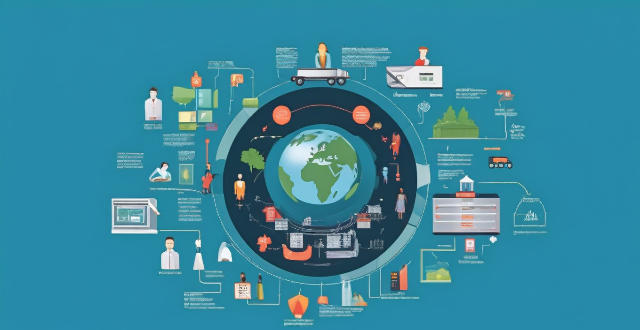
What are some examples of successful climate risk management initiatives around the world ?
Climate risk management is crucial for environmental sustainability, and successful initiatives worldwide include the Green Climate Fund (GCF), the European Union's adaptation strategy, the United Nations Framework Convention on Climate Change (UNFCCC), and the New York City Panel on Climate Change (NPCC). The GCF supports developing countries in tackling climate change through low-emission projects. The EU's strategy integrates adaptation into policy areas and invests in research. The UNFCCC provides a framework for global cooperation on climate change mitigation and adaptation. The NPCC offers scientific advice to New York City on climate risks and adaptation strategies. These initiatives adopt innovative approaches, collaborate across sectors, and engage stakeholders to build a sustainable future.

Is carbon capture technology a viable solution for industries with high carbon emissions ?
Carbon capture technology (CCT) is a process that captures carbon dioxide (CO2) emissions from burning fossil fuels and stores it to prevent its release into the atmosphere. This technology has been proposed as a solution to reduce greenhouse gas emissions from industries with high carbon footprints. However, there are both advantages and challenges associated with CCT. The primary advantage of CCT is its potential to significantly reduce greenhouse gas emissions from power plants and other industrial processes by capturing up to 90% of CO2 emissions. It also allows the continued use of fossil fuels while reducing their environmental impact, which is particularly important for countries heavily reliant on coal or natural gas for their energy needs. Additionally, the development and implementation of CCT could create new job opportunities in research, engineering, construction, and operation of these facilities. However, one of the biggest challenges facing CCT is its high cost. The installation and operation of carbon capture systems can be expensive, making it difficult for many companies to invest in this technology. Carbon capture processes also require energy, often from burning more fossil fuels, which can lead to a net increase in CO2 emissions unless the energy source is renewable. Once captured, CO2 needs to be transported and stored safely, requiring infrastructure that does not currently exist in many regions and raising concerns about leakage and long-term storage solutions. In conclusion, while carbon capture technology offers promising benefits for reducing greenhouse gas emissions from industries with high carbon footprints, it also presents significant challenges that need to be addressed before it becomes a widely adopted solution. Cost-effectiveness, energy requirements, and storage infrastructure are key areas that require further development and investment to make CCT a viable option for combating climate change.

What is zero-based budgeting and how does it work ?
Zero-based budgeting (ZBB) is a method that requires justification for all expenses and revenues each period, starting from zero. It involves identifying revenue streams, determining expenses, prioritizing them, allocating funds, and monitoring/adjusting the budget. Advantages include increased efficiency, improved cost control, and enhanced planning. Disadvantages are its time-consuming nature, complexity, and potential for underfunding essential programs. Organizations should consider these factors before implementing ZBB.

What role does investing play in achieving financial freedom ?
Investing plays a crucial role in achieving financial freedom by growing wealth, diversifying portfolios, and protecting against inflation. Strategies include starting early, making consistent contributions, adopting a long-term perspective, and managing risk effectively.

How can I add a personal touch to my Thanksgiving celebration ?
How to add a personal touch to your Thanksgiving celebration, including decorating with meaningful items, personalizing table settings, cooking or baking with love, incorporating family traditions, creating a cozy atmosphere, and showing gratitude.

How can teachers integrate climate change issues into their lesson plans ?
Teachers can integrate climate change into lessons by starting with basics, connecting it to real-world situations, incorporating data and research, encouraging critical thinking, promoting environmental stewardship, and adopting cross-curricular approaches.
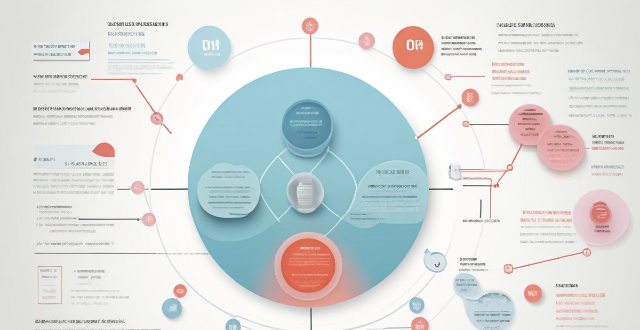
How can wealthy nations help achieve vaccine equity ?
Wealthy nations can help achieve vaccine equity by donating vaccines, providing financial support, sharing technology and knowledge, improving global health infrastructure, advocating for fair distribution, and collaborating on research and development.

What are some strategies for eating a more plant-based diet ?
Strategies for eating a more plant-based diet include embracing whole foods, experimenting with alternative proteins, getting creative with meal planning, learning about nutritional balance, educating yourself, supporting sustainable practices, and connecting with others. These steps can help you transition to a healthier and environmentally friendly way of eating while ensuring you receive all the necessary nutrients.
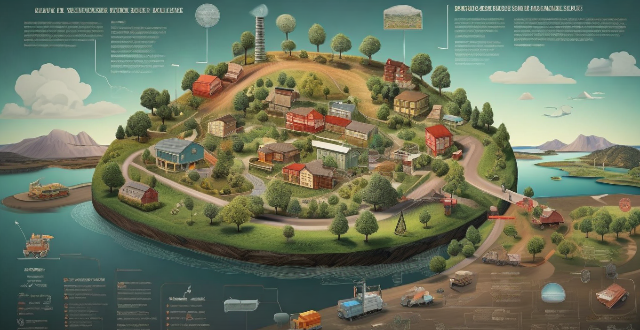
What are the benefits of implementing an ecological tax system ?
Ecological tax systems aim to internalize the external costs of pollution and resource degradation into market prices, promoting sustainable practices, generating public revenue, decreasing fossil fuel dependence, improving market efficiency, raising environmental awareness, stimulating innovation, fostering international leadership and cooperation, and protecting future generations.

How do financial regulations prevent financial crises ?
Financial regulations help prevent crises by managing risks, promoting transparency, protecting consumers, maintaining market integrity, overseeing systemic risks, reducing moral hazard, and coordinating internationally.

How do renewable energy sources contribute to industrial energy efficiency improvements ?
Renewable energy sources like solar, wind, hydropower, biomass, and geothermal power play a crucial role in enhancing industrial energy efficiency. They offer benefits such as reduced greenhouse gas emissions, lower operating costs, and increased reliability. By adopting these technologies, businesses can reduce their reliance on fossil fuels, increase energy independence, and contribute to a more sustainable future.
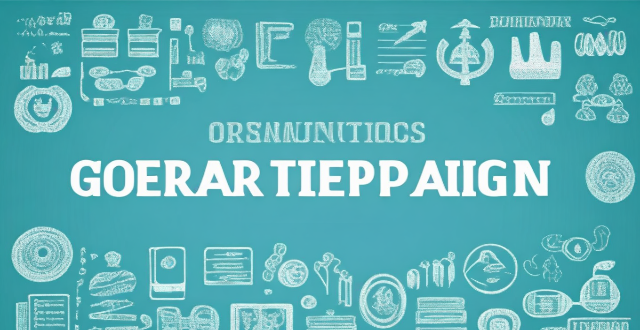
What are the best strategies for organizing a study group ?
This text is a guide on organizing a study group, emphasizing the importance of clear goals, selecting compatible members, establishing rules, planning effective meetings, sharing resources, incorporating different learning styles, evaluating progress, maintaining motivation, leveraging technology, and having a backup plan. The strategies outlined aim to enhance academic performance and collaboration skills among group members.
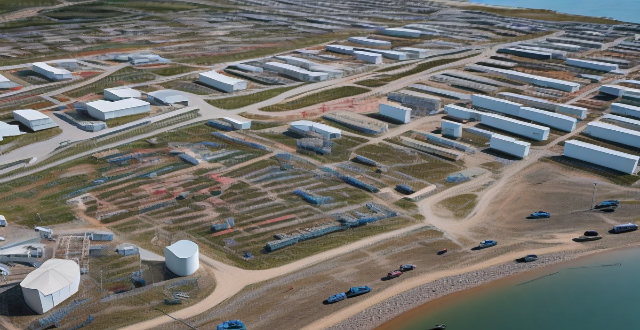
How do marine protected areas help in preserving marine biodiversity ?
Marine protected areas (MPAs) are crucial for preserving marine biodiversity by regulating human activities, providing habitats for thriving ecosystems, enhancing scientific research, supporting sustainable use, building resilience against climate change, educating and raising awareness, and facilitating ecosystem recovery.
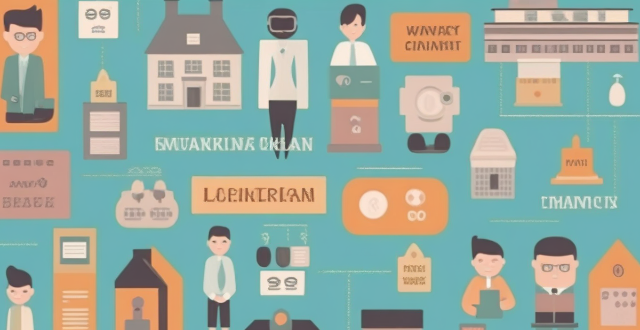
What are the risks of not protecting my data privacy ?
Data privacy is crucial to avoid risks like identity theft, financial loss, reputational damage, loss of trust, and legal consequences. Protecting personal information can prevent these dangers and ensure a safe digital life.

How do female athletes use their platform to promote positive messages and inspire other women ?
Female athletes inspire and influence women of all ages by breaking stereotypes, advocating for equality, promoting health, overcoming adversity, giving back to the community, educating the youth, using social media wisely, and setting a positive example.

How does having a blended family affect estate planning ?
Estate planning for blended families requires special considerations, such as establishing clear intentions for fairness and protection, drafting comprehensive legal documents including wills, trusts, and powers of attorney, updating beneficiary designations, navigating tax implications, and fostering open communication. It is crucial to work with estate planning professionals to ensure all family members are provided for according to the individual's wishes.

Are there any health precautions I should take before going on a cruise ?
Before embarking on a cruise, it's crucial to take necessary health precautions to ensure a safe and enjoyable experience. These include getting vaccinated, packing a travel health kit, staying hydrated, practicing good hand hygiene, being mindful of food safety, protecting oneself from the sun, and monitoring one's health during the trip. Consulting with a doctor or travel clinic can provide personalized advice tailored to individual needs and itinerary.

How can young people get involved in climate action ?
Young people can get involved in climate action by educating themselves, joining youth organizations, advocating for change, taking local action, volunteering, and supporting sustainable businesses.

What role do consumers play in promoting the use of climate-friendly products ?
Consumers have a significant role in promoting the use of climate-friendly products by educating themselves, choosing sustainable options, reducing consumption, advocating for change, giving feedback to companies, and supporting green initiatives. Their actions can drive market demand and encourage businesses to prioritize environmental considerations in their production processes.

What are the best practices for maintaining good personal health ?
Maintaining good personal health is essential for a happy and fulfilling life. Best practices include regular exercise, eating a balanced diet, getting adequate sleep, managing stress, having regular check-ups, avoiding harmful habits, and staying hydrated. Incorporating these practices into daily routines can help achieve optimal physical and mental well-being.

How can climate and environmental policies be adapted to address the challenges posed by climate change ?
To address the challenges posed by climate change, climate and environmental policies must be adapted to ensure they are robust, flexible, and capable of meeting the evolving needs of our planet. This can be done by setting clear and ambitious targets for reducing greenhouse gas emissions and developing strategies for adapting to the impacts of climate change that cannot be avoided. Promoting renewable energy sources, improving energy efficiency, investing in research and development, encouraging sustainable land use, strengthening international cooperation, educating the public and raising awareness, establishing carbon pricing mechanisms, and preparing for climate-related risks are also key steps. By adopting these measures, we can work together towards a sustainable future.